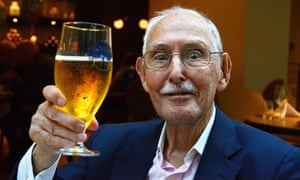The risk of getting dementia is actually decreasing and the prospect of living to a fulfilled old age is better than ever before

Only few want to grow old, as most of us are afraid of becoming senile. But now that our bodies last longer in better health, our brain being no exception, the prospect of living a fulfilled old age is better than ever before.
It is not difficult to think of somebody really old who is still as sharp as a razor blade. That sole fact is scientific logic against the notion that old age turns you confused. Old age and dementia are two separate entities that, although often coming together, are as different as old age and grey hair. Why then do so many people believe that the two are closely attached?
The worldwide attention afforded to Alzheimer’s disease, as dementia is erroneously called, did not appear out of the blue. In the early 1900s, the German doctor Alois Alzheimer described the symptoms of a middle-aged psychiatric patient. After her death, he examined her brain, and became the first researcher to describe amyloid deposits. With this, he had discovered a plausible mechanism for the cause of the signs and symptoms. At the time, Alzheimer’s work did not receive much attention. Psychiatrists and anatomists disputed the importance of his new discovery, preferring to emphasise the relation between blood vessels and damage in the brain.
For a long time dementia disappeared entirely into the background as a recognised illness, and people who became confused in old age were declared to be “senile”. Senility was thought to be a result of the “normal” ageing process and in the middle of the last century little attention was paid to their problems.
The denial of the existence of dementia is a sign of the discrimination that old people faced. In 1975, led by US-based Dr Robert Butler, the first director of the National Institute on Ageing, a new dawn of research emerged to break down this fatalistic view. Butler was a pioneer and wanted to make a statement for both young and old. “Alzheimer’s disease” was finally recognised by doctors and medical research scientists.
The positive part of the “war on Alzheimer’s” is that it put the issue of dementia back on the map. Opinion formers and policymakers in many developed countries have predicted horror scenarios, with the numbers of dementia patients increasing drastically in the coming years. This is partly true because the post-war baby boom generation will have reached a very old age by that time. After all, dementia is a disease that principally affects old people.
But those prognoses are based on the assumption that the statistical risk of getting dementia will remain the same. This is a false assumption. Dutch researchers have shown that the risk of getting dementia in old age was significantly lower after the year 2000 than before.
Brain scans carried out after 2000 showed far less damage due to cerebro vascular disease, which would be a plausible explanation for the reduced risk. The epidemic of cardiovascular disease has long been on the decline, beginning with a fall in the numbers of heart attacks in middle age, and followed by a drop in the number of strokes suffered by old people. Now, bringing up the rear, we see dementia figures falling for the oldest in society.
Colleagues in Denmark and independently in Sweden provided remarkable confirmation of this general improvement of body and mind. They showed irrefutably that the physical and mental functions of people now in their 90s are simply better than those of nonagenarians born 10 years earlier. They believe this is due, in part at least, to the fact that today’s old people generally enjoyed a much better education early in life. Their brains were better nurtured. It does not come as a surprise that a large scale population survey in the United Kingdom has prompted researchers to report a 30% drop in the risk of getting dementia over the past 20 years. The end to the epidemic is in sight.
Is early testing necessary? There is general consensus that screening for dementia makes absolutely no sense at all, and can even be considered unethical. Tests for early stages of dementia can be a huge hazard, as people who receive such a diagnosis believe they are doomed to die with dementia, but that is far from always being the case. After delivering the diagnosis of dementia, modern medicine has nothing to offer them by way of slowing down any cognitive degeneration.
However, by life long learning, appropriately treating high blood pressure, engaging in physical exercise and avoiding becoming overweight, dementia may be prevented.
The huge variation in the way people grow older should inspire us to take up the individual challenge and the public responsibility to grow old successfully. It is never too late but also never too early to start.
Rudi Westendorp is professor of Medicine and Old Age at Copenhagen University and the author of Growing Old Without Feeling Older (published 3 August by Scribe $29.99)
No comments:
Post a Comment